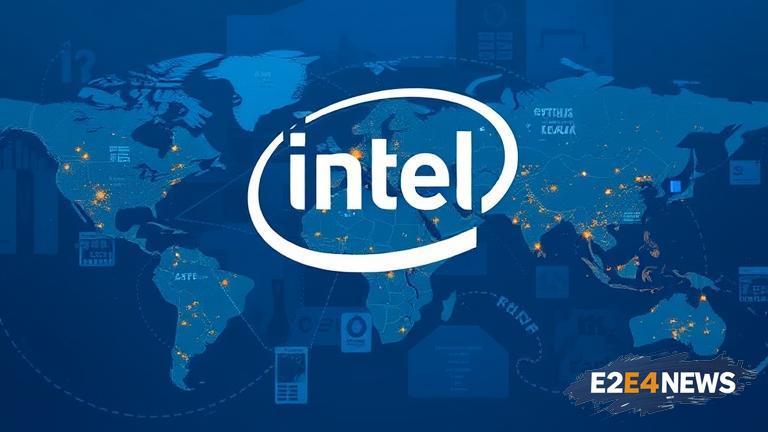Intel, the American multinational corporation and technology company, has recently expressed concerns that an increased US stake in the company could have detrimental effects on its international sales and future grants. The company’s warning comes amidst rising tensions between the US and other nations, particularly China, which has led to a surge in trade restrictions and geopolitical uncertainty. Intel’s concerns are rooted in the potential for trade restrictions to limit its ability to conduct business in certain countries, thereby impacting its international sales. Furthermore, the company is worried that an increased US stake could lead to a loss of neutrality, making it more challenging to operate in countries with strained relationships with the US. As a result, Intel is urging caution and emphasizing the need for a balanced approach to ensure the company’s long-term success. The company’s international sales account for a significant portion of its revenue, and any disruption to these sales could have far-reaching consequences. Intel’s products are used in a wide range of applications, from personal computers to data centers, and the company’s global presence is a key factor in its success. However, the current trade tensions and geopolitical climate have created an uncertain environment, making it challenging for companies like Intel to navigate. The US-China trade war, in particular, has had a significant impact on the technology industry, with many companies facing tariffs, export restrictions, and other trade barriers. Intel is not alone in its concerns, as many other companies have also expressed worries about the potential consequences of increased US stake. The company’s warning serves as a reminder of the complex and interconnected nature of the global economy, where actions in one country can have far-reaching consequences in others. In addition to the potential impact on international sales, Intel is also concerned about the effects on future grants. The company relies on government grants and funding to support its research and development efforts, and any disruption to these grants could hinder its ability to innovate and stay competitive. Intel’s research and development efforts are focused on advancing technologies such as artificial intelligence, 5G, and the Internet of Things, which are critical to the company’s long-term success. The company’s ability to secure government grants and funding is essential to supporting these efforts and driving innovation. However, the current geopolitical climate has created uncertainty around the availability of these grants, making it challenging for companies like Intel to plan for the future. Despite these challenges, Intel remains committed to its mission of advancing technology and improving people’s lives. The company is working closely with governments, industry partners, and other stakeholders to navigate the complex geopolitical landscape and ensure its long-term success. Intel’s warning serves as a reminder of the need for cooperation and collaboration in the face of uncertainty and adversity. By working together, companies, governments, and other stakeholders can help to mitigate the risks associated with increased US stake and ensure a more stable and predictable environment for business. In conclusion, Intel’s warning highlights the potential consequences of increased US stake on international sales and future grants. The company’s concerns are rooted in the complex and interconnected nature of the global economy, where actions in one country can have far-reaching consequences in others. As the global economy continues to evolve, it is essential for companies, governments, and other stakeholders to work together to navigate the challenges and uncertainties of the current geopolitical climate.
